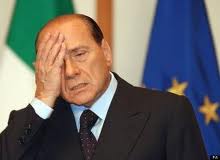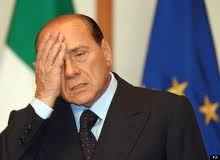
The sudden collapse of the Berlusconi government on 12 November and the formation of a technocratic leadership are ominous signs of things to come, not only for the Italian working class but for the peoples of Europe.
Three times prime minister Silvio Berlusconi, the former cruise ship crooner and right-wing populist, had been under the shadow of charges and allegations for fraud, corruption and statutory rape, but it was the demands of European capital that finally brought him down. The European Central Bank demanded that the Italian government pass a €54 billion package of austerity measures to deal with Italy’s €1.9 trillion debt – 120% of GDP. As Italy’s costs of borrowing soared to an all-time high, the parliamentary budget vote on 11 November accepted the package; Berlusconi resigned the next day, paving the way for an unelected cabinet, led by former EU competion minister and Goldman Sachs adviser Mario Monti, to rule Europe’s third largest economy strictly in the interests of European capital.
The stench of austerity
The austerity package demands include spending cuts, tax rises and public sector wage freezes, with the aim of balancing the budget by 2014. The cuts will affect living standards and access to public services such as health. Within days of the budget being passed and the Monti government installed, thousands of Italians took to the streets to protest against the ‘bankers’ government’. Students in Italy’s financial capital Milan threw firecrackers at police trying to prevent them approaching the Bocconi University. Police responded by charging the students with batons. The students also threw eggs and fake dollar banknotes at the Italian banking association building. There were also protests in Turin, Rome, Palermo and Bari, with demonstrators targeting universities where some of Monti’s ministers used to teach, bank branches and tax offices. In Turin, clashes broke out between police and thousands of demonstrators trying to reach the local headquarters of the Bank of Italy. Protesters denounced the ‘stench of austerity’ and shouted ‘Monti will all make us beggars’. The new era of austerity in Italy may finally see a return to the clearly demarcated, class-based politics which had been the hallmark of Italy’s post-unification history. Berlusconi’s erstwhile strength was made possible only because of the weakness of a Left, which has been in retreat and divided since the collapse of the socialist bloc in 1989.
However, it is far from certain that the current economic crisis will only benefit the left. Italy’s far right never went away and is on the rise again. Parties such as the Northern League, led by Berlusconi’s former coalition partner Umberto Bossi, or Forza Nuova which has influence over Italy’s poorer South, where unemployment has been over 30%, can offer a toxic blend of religion and anti-migrant racism to those who increasingly resent an austerity government imposed by European bankers. The risk is that an alliance of such far-right forces will turn Italy into a model for the European far-right once again unless the working class begins to organise in its own interests.
Dario Chiaradonna




